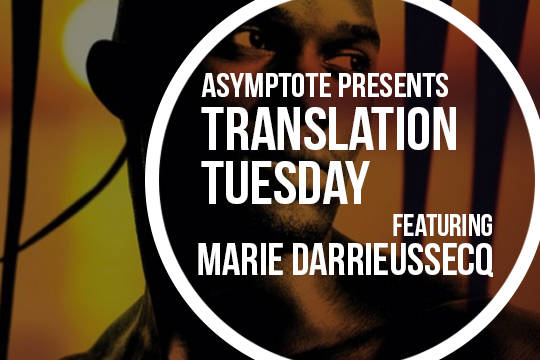Penny Hueston, translator and editor at Text Publishing—a Melbourne-based independent publishing house—shared with me the process of translating the inimitable French author Marie Darrieussecq, how her editing and translation processes relate, and her next translations we have to look forward to.
Madeline Jones (MJ): How did you first begin translating?
Penny Hueston (PH): After spending about four years in Paris doing post-graduate studies, I returned to Melbourne and was asked to translate various articles—by the literary critic Gérard Genette, for example—for the French issue of a literary magazine, Scripsi. I also translated, with the poet John A. Scott, poems by Emmanuel Hocquard and by Claude Royet-Journoud. Poetry must be the hardest writing to translate.
MJ: Would you say translating followed naturally from your editing career, or how do the two processes relate to one another for you, if at all?
PH: I suppose you could say that translating is a form of editing. In a sense, both my fields of work are about being more or less invisible; at least that is how I conceive of my work as an editor. Julian Barnes seems to nail a similarity between the two processes: “Translation involves micro-pedantry as much as the full yet controlled use of the linguistic imagination. The plainest sentence is full of hazard; often the choices available seem to be between different percentages of loss.” Damon Searles’ take is that translators “gerrymander unscrupulously”, which could also apply to editors! Javier Marias could be talking about editors when he says of translators: “You have to choose every word. And like an actor, you have to renounce your own style.”


